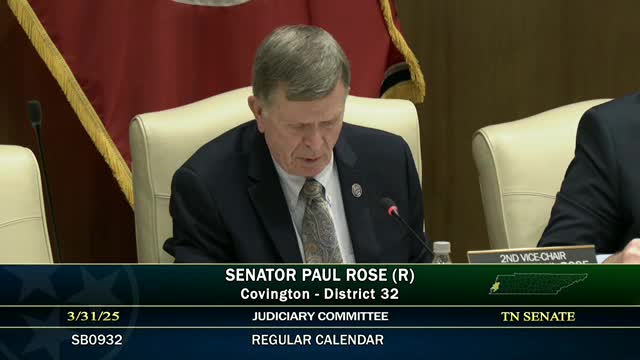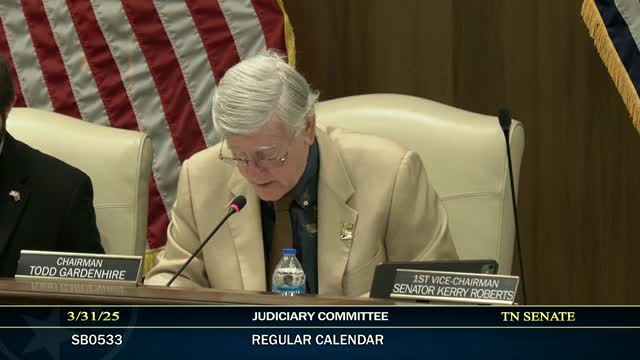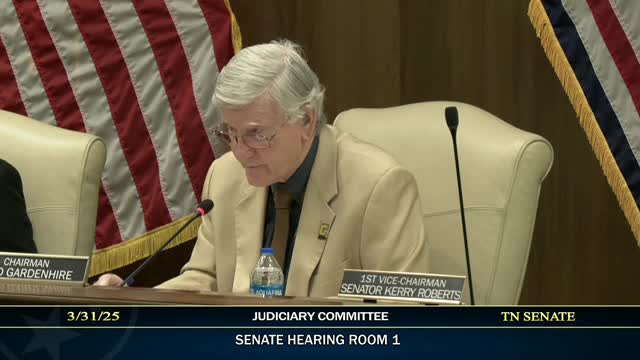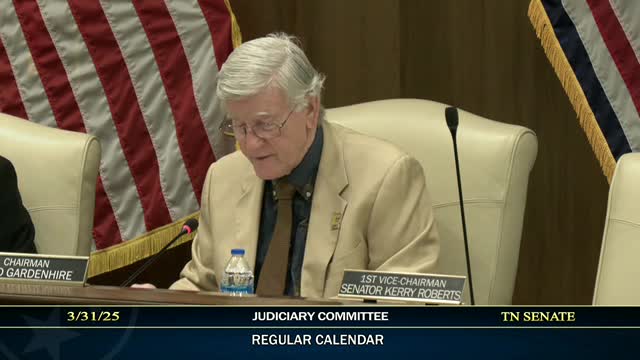Article not found
This article is no longer available. But don't worry—we've gathered other articles that discuss the same topic.

Committee approves study of driver-license reinstatement options, SB 9-32 amended and sent to calendar

Committee approves change allowing DA to appoint replacement in removal proceedings; SB 6-55 to calendar

Committee adopts amendment changing electronic monitoring cost rules; SB 5-33 headed to calendar

Memphis mother urges state ban on Glock conversion devices; committee delays vote

